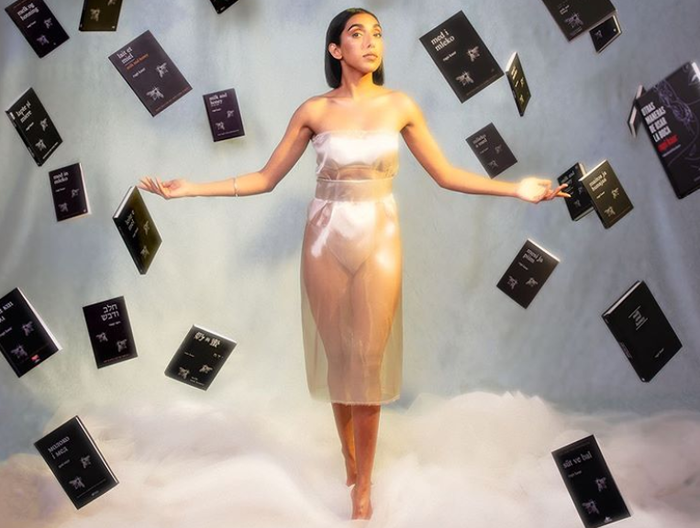Five books to get you into modern poetry
Alex Haydn-Williams serves up an array of poetic amuse-bouches that will tempt even the most reluctant reader.
Modern poetry can be offputting — and getting into it can be hard.
you imagine a world of
lower-case unpunctuated
pretension and horrendous
enjambement and bad
poems about sex on
bad mattresses
It’s not all like that, though. Even though my degree is just reading poems, dipping into modern collections is one of my favourite ways to while away free time, reflect on my emotions and inspire my writing. Chaucer and Donne are great, don’t get me wrong; they teach you about eternal ideas, undying humour. But poems written in the present moment will always understand it better than those written four hundred years ago, and there’s nothing quite as exciting, or inspiring, as seeing a new form emerge for the first time before your very eyes. To start your journey into the modern poetry scene, here’s five of my favourite individual collections published in the last two years, with recommendations based on the poets you already like. Their topics range wildly — from New York to nightmares to segregated Hong Kong — but I think everyone will find a bit of themselves in each one.
Hannah Sullivan, Three Poems
If you like T.S. Eliot
It’s no accident that Faber & Faber published this volume with black and red text on a light blue cover — the same colours that they used for Eliot and Pound’s covers a century before. In her other life, Sullivan studies the modernists as an Associate Professor at Oxford. As a poet, she’s unapologetically one of them, rhapsodising urban ennui in tight tercets. But hers is an internet-age modernism, erotic and sharp: ‘The pore-ticked sallow bruise seems truer / Than the speed, the spasm with which you came’. Read ‘You, Very Young in New York’, the first of the titular three, and wonder who ‘You’ is, or are, moving through a cityscape of prescription drugs and Mr Brightside played once too often. It’s a good poem about sex on bad mattresses.
Richard Scott, Soho
If you like Paul Verlaine

Soho weaves its way through the hidden canon of queer literature, scribbling COCK in the margins of ‘the library where there is not one gay poem’ in ‘Public Library, 1998’, then imagining Verlaine in modern London. Sex oozes breathlessly across Scott’s raw line endings: ‘even if we’re missionary the hairless/back of my knees against your shoulders/it’s still an act of protest’; he knows that the queer body is a site of pride, and vulnerability. By the final poem, ‘Oh My Soho!’ — the collection’s beating, scarred heart — it’s mapped onto the landscape; the ‘viral SUBWAY’ is ‘bricked-up, vaccinated’ after the AIDS crisis. Twenty-one years after he browsed a library bare of gay stories, Scott’s given London an empathetic, visible — and often very funny — queer history.
Rachael Allen, Kingdomland
If you like John Berryman
Berryman’s dark, whorling consonants find their match in Rachael Allen’s debut. Elements and bodies mix in images stolen from dark, confused nightscapes. Start with the title poem and fall into a traumatic, pagan world: ‘There is a bottle neck at the base of the hive. / There is an impassable knowledge that your eyebrows bring. / Beside the poor library and the wicker-man, / there’s a man who sells peacock feathers on the roundabout, / they scream all night from where they are plucked.’ Kingdomland is so engrossing that, reading it, you forget where — and when — you are; Allen’s vision is absolute, and encompasses you whole.
Mary Jean Chan, Flèche
If you like Adrienne Rich
A book about fencing (Flèche) and about bodies (Flesh), and the sharp stabs when they meet. Like Rich, Chan writes about her life and her loves for their own sake, not as anything special — and in doing so, resists the structures that would make them invisible. Chan’s poems are a proud, essential defence of lesbian sexuality and domesticity, and the betweenness of being Chinese-British. Read ‘At the Castro’ and your breath disappears as you step into a gay bar for the first time: ‘a cathedral / of mouths / this is how heretics / become holy’; then read ‘The Importance of Tea’ and wonder about cultural translation: what exactly is ‘normal tea’ — and what, then, is ‘normality’?
Zaffar Kunial, Six
If you like W. H. Auden

Kunial spent part of last year as the Oval’s poet in residence, and his period there produced this breathtaking pamphlet — six poems about cricket, but also about time, parallel futures, and childhood. Kunial’s style is a wise vernacular that Auden would have loved: ‘We all have lives that go on without us’, he says in ‘England’, a reflection on his schoolboy trials for Warwickshire. Six is a pamphlet to read and re-read; its words are so plain and so well put together that you won’t realise until much later how permanently they’ve marked you, like a grass stain.
 News / Uni Scout and Guide Club affirms trans inclusion 12 December 2025
News / Uni Scout and Guide Club affirms trans inclusion 12 December 2025 News / Cambridge Vet School gets lifeline year to stay accredited28 November 2025
News / Cambridge Vet School gets lifeline year to stay accredited28 November 2025 News / Pembroke to convert listed office building into accom9 December 2025
News / Pembroke to convert listed office building into accom9 December 2025 Science / Did your ex trip on King’s Parade? The science behind the ‘ick’12 December 2025
Science / Did your ex trip on King’s Parade? The science behind the ‘ick’12 December 2025 Features / Searching for community in queer Cambridge10 December 2025
Features / Searching for community in queer Cambridge10 December 2025









